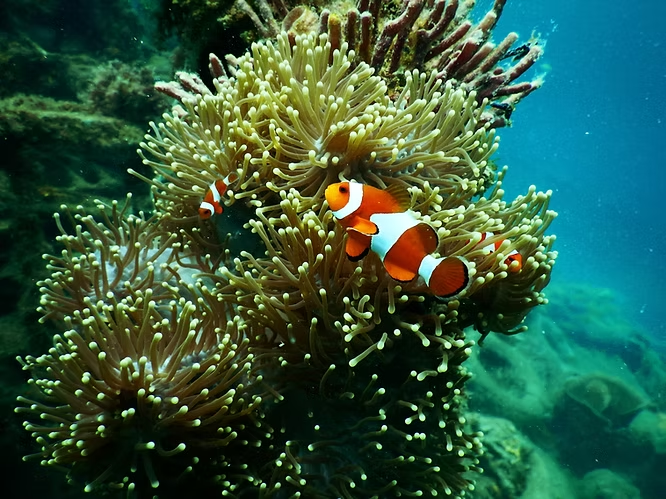How Boat Noise Disrupts Reef Fish Parenting
When boats travel near the Great Barrier Reef, their noise can disrupt the delicate parenting behaviors of small reef fish. A recent study published in Nature Communications highlights how noise pollution reduces the chances of offspring survival, adding to evidence that sound disturbances can harm marine ecosystems.
The Study on Spiny Chromis
The research focused on the spiny chromis (Acanthochromis polyacanthus), a small but abundant reef fish known for its extensive parental care. These palm-sized fish carefully fan their eggs to ensure oxygen supply and guard their young for months after hatching.
Field Observations
Marine ecologist Sophie Nedelec and her team at the University of Exeter monitored 59 nests across six sites near Lizard Island, Australia, during the 2017–2018 breeding season. At quieter sites, researchers kept boats at a distance or slowed their approach to minimize noise. At noisier sites, boats passed at full throttle daily, creating a stark contrast in sound exposure.
- 65% survival rate of nests in quieter areas
- 40% survival rate of nests exposed to heavy boat traffic
- Young raised in quieter environments were larger and healthier
Laboratory Experiments
To further test the effects, pairs of adult fish were placed in tanks with terracotta nesting caves. Those exposed to boat noise recordings fanned their eggs less and displayed signs of agitation, such as swimming away from their nests more often. In contrast, fish exposed to natural reef sounds maintained steadier parenting behaviors.
The Role of Stress
Researchers observed that unexpected noise likely triggers stress responses in fish, disrupting natural caregiving. Prior studies have shown that noise can elevate stress hormones in marine animals, weakening their resilience and lowering survival rates of their young.
Simple Solutions for Reef Protection
While climate change poses the greatest long-term threat to coral reefs, reducing local stressors like noise pollution offers a practical, immediate benefit. Experts emphasize that small behavioral changes in boating practices could improve fish survival and reef resilience.
- Keep boats farther away from reefs
- Slow down when traveling near reef areas
- Encourage creation of acoustic sanctuaries for marine life
A Path Toward Recovery
Unlike chemical pollutants, noise disappears the moment it stops, making mitigation straightforward. By simply reducing boat traffic near sensitive reef areas or slowing vessels, humans can give coral reef ecosystems and their inhabitants a better chance to recover and thrive.

